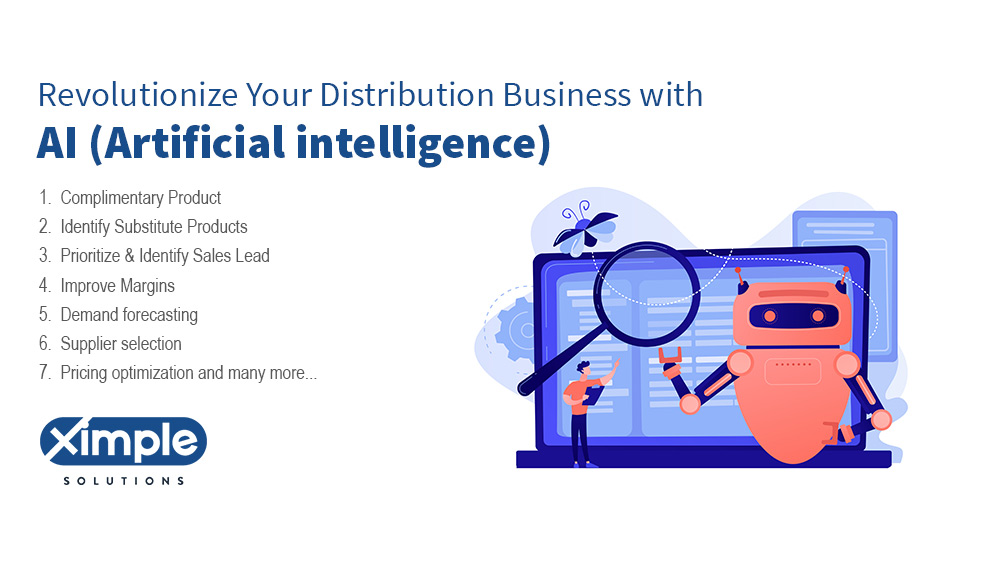Automation in sales streamlines and accelerates the sales process through the use of technology, enabling businesses to manage and optimize their sales activities efficiently. In today’s competitive market, businesses are increasingly adopting sales automation tools to automate repetitive tasks, enhance productivity, improve customer experience, and generate better insights for informed decision-making.
By automating tasks such as lead generation, follow-ups, data entry, and reporting, sales teams can focus on building relationships, closing deals, and delivering value to customers. Sales automation not only saves time and reduces human errors but also drives revenue growth, improves sales performance, and maximizes ROI.

Credit: m.facebook.com
Benefits Of Automation In Sales
Automation has revolutionized the sales industry, enabling companies to streamline processes and maximize productivity. By leveraging technology, businesses can experience several key benefits that can drive growth and improve overall performance. In this article, we will explore three key advantages of implementing automation in sales: increased efficiency, improved lead management, and enhanced customer experience.
Increased Efficiency
Automation in sales can significantly enhance efficiency by automating repetitive tasks and reducing manual workload. With the help of software tools and platforms, sales representatives can automate various time-consuming activities such as data entry, email follow-ups, and report generation. By eliminating these manual tasks, sales teams have more time available to focus on important tasks like building customer relationships and closing deals. This increased efficiency leads to a higher volume of sales activities being completed in a shorter amount of time, ultimately driving revenue growth for the business.
Improved Lead Management
Efficient lead management plays a crucial role in the success of any sales team. Automation provides a powerful solution to streamline lead management processes and improve overall effectiveness. With automated lead scoring and nurturing, sales teams can quickly identify qualified leads and prioritize their efforts accordingly. This eliminates the need for manual lead qualification and allows sales representatives to focus solely on leads with the highest potential for conversion. By automating lead management, businesses can effectively track and manage their leads, resulting in improved conversion rates and increased revenue.
Enhanced Customer Experience
In today’s competitive business landscape, providing an exceptional customer experience has become a top priority for organizations. Automation in sales enables businesses to deliver a more personalized and seamless customer experience throughout the sales process. By leveraging automation tools, companies can track customer interactions, preferences, and behaviors, allowing sales teams to tailor their approach to each individual customer. This personalized approach builds stronger relationships and fosters trust, ultimately leading to increased customer satisfaction and loyalty. Additionally, automation ensures timely follow-ups and provides customers with accurate and up-to-date information, further enhancing their overall experience.

Credit: www.ximplesolution.com
Key Technologies For Sales Automation
Sales automation is driven by key technologies that streamline processes, such as CRM systems, email marketing tools, and artificial intelligence. By harnessing these technologies, businesses can improve sales efficiency, enhance customer experiences, and drive revenue growth.
Customer Relationship Management (crm) Software
Customer Relationship Management (CRM) software is a key technology for sales automation. It helps sales teams manage and organize their customer data, track interactions, and streamline their sales processes. A CRM system allows businesses to access a centralized database that contains all customer information, such as contact details, purchase history, and communication history. By using CRM software, sales teams can effectively manage their leads and opportunities, track customer interactions, and improve customer relationship management.
Artificial Intelligence (ai) And Machine Learning
Artificial Intelligence (AI) and Machine Learning are game-changing technologies in the sales automation landscape. AI-powered tools can analyze vast amounts of data to provide valuable insights and predictions. By leveraging AI, sales teams can automate tasks like lead scoring, customer segmentation, and personalized recommendations. Machine Learning algorithms can analyze customer behavior, identify patterns, and make data-driven predictions to optimize sales strategies. These technologies enable sales teams to enhance the efficiency and effectiveness of their sales processes, resulting in improved customer satisfaction and increased revenue.
Sales Enablement Tools
Sales enablement tools are designed to empower sales teams with the right resources and information to drive sales success. These tools can include content management systems, sales training platforms, and analytics software. Sales enablement tools provide sales representatives with access to relevant product information, sales collateral, and training materials, allowing them to effectively engage with prospects and close deals. These tools also enable sales managers to monitor and measure the performance of their team, identify areas for improvement, and provide coaching and support as needed.
Implementation Challenges And Best Practices
With the rise of automation in sales, implementing new tools and practices can pose challenges. However, by incorporating best practices and adapting strategies, businesses can harness the power of automation to streamline sales processes and drive growth.
Integration With Existing Systems
Implementing automation in sales can bring numerous benefits, but it also comes with its fair share of challenges. One of the major hurdles is integration with existing systems. Organizations often have multiple systems and tools already in place to manage various aspects of their sales processes. The challenge lies in finding a solution that seamlessly integrates with these systems, ensuring a smooth transition without disrupting the workflow. To overcome this challenge, it is important to thoroughly evaluate the compatibility of the automation tool with the existing systems. Conducting a comprehensive analysis of the current systems and the functionalities required for automation will help identify any potential conflicts or gaps. It is crucial to choose an automation solution that offers robust integration capabilities and can easily connect with other tools and platforms used in the sales process.
Data Security And Privacy
Another critical consideration when implementing sales automation is data security and privacy. With automation, sensitive customer information and sales data are stored and processed by the system. Any breach in security can lead to serious consequences, such as loss of customer trust and hefty fines for non-compliance with data protection regulations. To ensure data security and privacy, it is essential to leverage automation solutions that follow the industry’s best practices and maintain a high level of data protection. Choose a tool that offers advanced security features such as encryption, access controls, and regular system audits. Implement strict data access policies and train your sales team on the importance of safeguarding customer data. Regularly review and update security protocols to stay ahead of evolving cybersecurity threats.
Training And Adoption
The success of implementing sales automation heavily relies on the training and adoption by the sales team. Resistance to change is a common challenge faced during the implementation process. Sales representatives may feel threatened by the introduction of automation, fearing that it may replace their roles or make their jobs redundant. Therefore, it is crucial to address this concern and provide comprehensive training and support to ensure their smooth transition into using the new automation system. Start by educating the sales team on the benefits of sales automation and how it can enhance their productivity and overall performance. Conduct training sessions to familiarize them with the new tools and processes, providing hands-on practice and real-life scenarios. Encourage open communication and feedback to address any concerns and make necessary adjustments. Additionally, it is important to lead by example and showcase the success stories of early adopters, highlighting how automation has positively impacted their sales results. This will motivate the team to embrace automation and view it as a valuable tool rather than a threat to their roles. In conclusion, integrating automation into sales processes can significantly boost efficiency and productivity. However, it is important to tackle the implementation challenges effectively. By ensuring seamless integration with existing systems, prioritizing data security and privacy, and providing comprehensive training and support, organizations can overcome these challenges and leverage automation to drive sales success.
The Future Of Sales Automation
Sales automation has become an integral part of businesses, as companies strive to optimize their sales processes and stay ahead in a competitive market. With advancements in technology, the future of sales automation is only getting brighter. In this blog post, we will explore the emerging technologies to watch, the impact on sales roles and workforce, and strategies for transitioning to automation.
Emerging Technologies To Watch
The ever-evolving landscape of automation brings forth several emerging technologies that could revolutionize the sales industry. Some of these technologies include:
- Artificial Intelligence (AI) – AI-powered chatbots can handle customer inquiries, provide personalized product recommendations, and assist in the sales process.
- Machine Learning – By analyzing vast amounts of customer data, machine learning algorithms can optimize sales strategies, identify patterns, and predict customer behavior.
- Internet of Things (IoT) – IoT devices can gather real-time customer data, enabling sales teams to tailor their approach and offer more personalized solutions.
- Robotic Process Automation (RPA) – RPA can automate repetitive sales tasks, such as data entry, allowing sales representatives to focus on building relationships and closing deals.
Impact On Sales Roles And Workforce
As sales automation continues to permeate the industry, it directly impacts the roles and responsibilities of sales professionals. However, it is crucial to note that automation does not replace human talent. Instead, it enhances productivity and allows sales teams to concentrate on high-value activities. Here are some ways automation affects sales roles and the workforce:
- Streamlined Sales Processes – Automation eliminates manual tasks, enabling sales representatives to focus on strategic activities, such as building customer relationships and closing deals.
- Enhanced Efficiency – By leveraging technology, sales teams can handle larger volumes of leads and contacts, resulting in increased productivity and revenue.
- Improved Data Analysis – Automation tools provide valuable insights into customer behavior and sales performance, empowering sales professionals to make data-driven decisions.
- Reskilling Opportunities – With the emergence of automation, sales professionals can acquire new skills in leveraging technology, data analysis, and customer relationship management.
Strategies For Transitioning To Automation
Transitioning to sales automation requires careful planning and execution. Here are some strategies businesses can implement for a successful transition:
- Evaluate Sales Processes – Assess existing sales processes to identify tasks that can be automated and areas for improvement.
- Invest in Training – Provide comprehensive training programs to equip sales teams with the necessary skills to leverage automation tools effectively.
- Integrate Systems – Integrate existing CRM and sales automation tools to streamline workflows and ensure seamless data exchange.
- Emphasize Collaboration – Encourage collaboration between sales and IT departments to ensure smooth implementation and ongoing support of automation initiatives.
- Monitor and Optimize – Continuously monitor the effectiveness of automation tools and make necessary adjustments to maximize their impact on sales performance.

Credit: www.amazon.com
Frequently Asked Questions For Automation In Sales
How Does Automation Increase Sales?
Automation increases sales by streamlining repetitive tasks, improving efficiency, and providing personalized experiences. It enables businesses to easily manage customer data, segment audiences, send targeted emails, and track customer interactions. This leads to increased productivity, better customer engagement, faster response times, and ultimately, higher conversion rates and revenue.
How Do You Automate Sales Jobs?
Automating sales jobs involves using technology to streamline and optimize various tasks and processes. This can be done by implementing customer relationship management (CRM) software, email marketing automation, chatbots, and sales prospecting tools. These automated tools help save time, increase efficiency, and improve overall sales performance.
What Are The Effects Of Sales Automation?
Sales automation offers several advantages including increased efficiency, streamlined processes, improved productivity, accurate data analysis, and enhanced customer experience. It allows businesses to automate repetitive tasks, reduce manual errors, and make data-driven decisions. This ultimately leads to higher sales, better customer satisfaction, and increased profitability.
What Does Automation Mean In Crm?
Automation in CRM refers to the use of technology to streamline and automate various tasks and processes related to customer relationship management. This includes automating workflows, email marketing campaigns, data entry, and customer support, among others. By automating these processes, businesses can save time, enhance efficiency, and improve the overall customer experience.
Conclusion
Automation in sales offers numerous benefits such as improved efficiency, increased productivity, and reduced costs. By automating various tasks, sales teams can focus on building relationships with clients and closing deals. Additionally, automation enhances data accuracy and provides valuable insights for decision-making.
Embracing sales automation is essential for businesses to stay competitive in today’s fast-paced and ever-evolving market. Implementing automation tools and technologies will undoubtedly lead to better sales outcomes and drive overall business growth.




